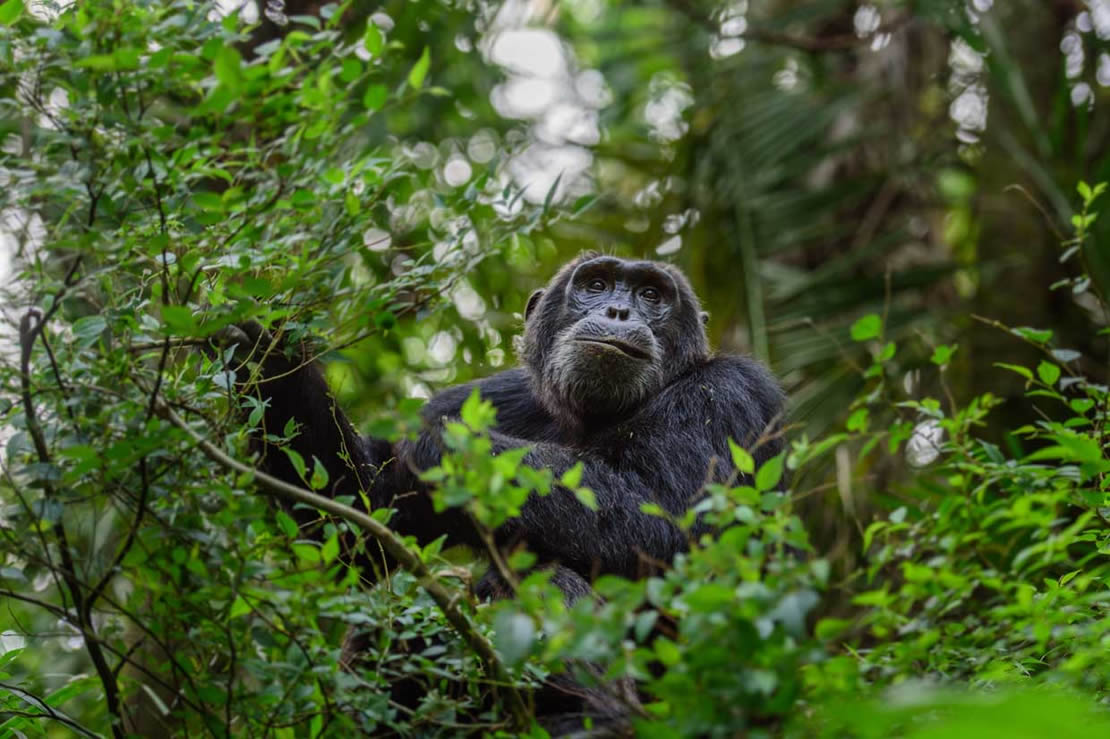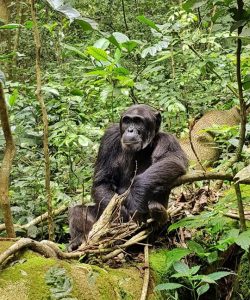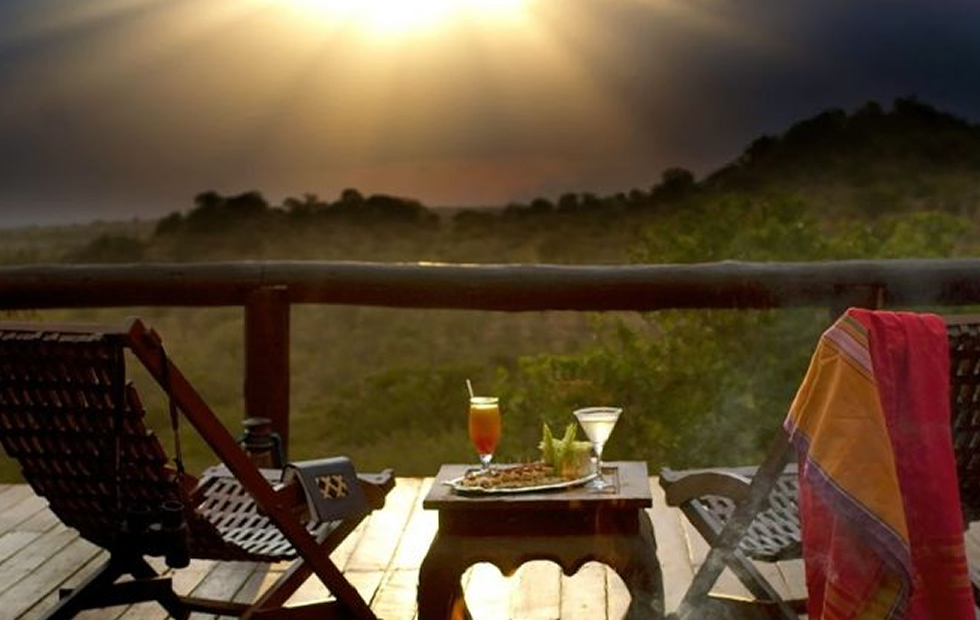Did you know there’s such a thing as chimpanzee habituation in Uganda? While the internet flourishes with personal stories about gorilla trekking and habituation experiences in Africa, chimpanzees however receive relatively less attention as they continue to stay within the shadows of their great cousins, mountain gorillas.
Chimpanzee habituation experience is done by visitors in the company of ranger guides, researchers, and trackers; this process literally means training / taming the wild chimpanzees to get accustomed to people. This can take up to two years, or sometimes even more depending on how fast chimpanzees get used.
Chimpanzee Habituation experience involves generally observing the behaviors, chores, and day-to-day activities of the wild chimps until they get fully acquainted with human presence.
A chimpanzee Habituation permit in Uganda costs about $250 per person, and this gives one a full day experience with chimpanzees in Kibale Forest National Park, while in Budongo forest, this experience is quite affordable costing only 160$ per permit. Budongo Forest is located in the southern sector of Murchison Falls National Park, which means that if one is planning to go to Budongo Forest for Chimpanzee Habituation, they can as well include other activities in Uganda’s largest national park; these include; – sensational game drives in the northern part of the park, boat rides along Victoria Nile to bottom of the falls and to the delta, sport fishing, adventurous hike to the top of the falls, balloon safaris, etc.
Day of Chimpanzee Habituation.
 On a typical habituation day, wake up as early as 5:30 am and prepare to meet a chimpanzee troop of 20 or so individuals. These great apes build their nests in a different location each night making their lives so unique, different from other primates. Early morning, chimps can be seen foraging and noshing on figs and while visitors move around and get closer during this trek, fruits can be seen falling. One by one, trekkers can clearly hear the thump of figs dropping on the forest floor.
On a typical habituation day, wake up as early as 5:30 am and prepare to meet a chimpanzee troop of 20 or so individuals. These great apes build their nests in a different location each night making their lives so unique, different from other primates. Early morning, chimps can be seen foraging and noshing on figs and while visitors move around and get closer during this trek, fruits can be seen falling. One by one, trekkers can clearly hear the thump of figs dropping on the forest floor.
Stay alert not to get caught in rainfall of urine, Huh!, some close calls — enough to make you maneuver back to safety on the dirt road until chimps finally climb down the trees.
It takes about three hours for the chimpanzee troop to finally descend from their nocturnal nests, or even earlier than that. Habituation requires patience, but remember – good things come to those who wait!
 The reward is of course an extraordinary opportunity to observe an entire spectrum of their natural behaviors: babies as young as 8 months old clumsily swinging from tree to tree, the “mighty father” taking a rest on the forest bed with arms folded behind his head, an intimate grooming session (a form of primate social bonding) between two males and a motherly upbringing portrayed by these “queen chimp mothers” as they take care of the juveniles.
The reward is of course an extraordinary opportunity to observe an entire spectrum of their natural behaviors: babies as young as 8 months old clumsily swinging from tree to tree, the “mighty father” taking a rest on the forest bed with arms folded behind his head, an intimate grooming session (a form of primate social bonding) between two males and a motherly upbringing portrayed by these “queen chimp mothers” as they take care of the juveniles.
Chimpanzees are fast in nature and especially while feeding. One has to walk fast at certain points to keep pace. There will also be moments of slow movements when collecting different kinds of data.
Chimp habituation is a full day activity, therefore trekkers ought to pack enough lunch, drinking water, and lots of snacks because of the long walks. Trekkers are not allowed to smoke, drink or eat anything in the presence of chimps. The ranger guides will advise on a proper place to eat as well as those who might need to use an African “bush toilet”.
Take as many photos as you wish, but do not use the flash. Given the speedy pace of chimps, trekkers are advised to adjust to the right settings of their cameras to avoid missing out on magical and acrobatic moments to capture the chimps.
Apart from chimpanzee habituation, there are so many other activities not to miss out on in Kibale national park and Budongo. These places are equally rich in other primate species, including the Black and White Colobus Monkeys, vervet monkeys, and baboons, Central African Monkeys, L’Hoests’ Monkeys, Blue Monkeys, and the Ugandan Red Colobus Monkeys.
There are other numerous species of mammals, such as the Red and Blue Duikers, Sitatungas, the Giant Forest Hogs, Bushbucks, forest elephants, Bush pigs, African forest Buffalo and Common Warthogs. Carnivores like the otter species, Leopards African Golden cats, and different kinds of Mongooses.
There is prolific birdlife in these destinations with over 325 recorded bird species like the Ground Thrush, Western Tinkerbird, great blue Turaco, Olive Long-tailed Cuckoo, and the African Grey parrot, among others.
An amazing cocktail presenting all reasons to go for Chimpanzee Habituation safari because it is an exhilarating, educational and adventurous experience you wouldn’t want to miss out on during your tour in Uganda.






